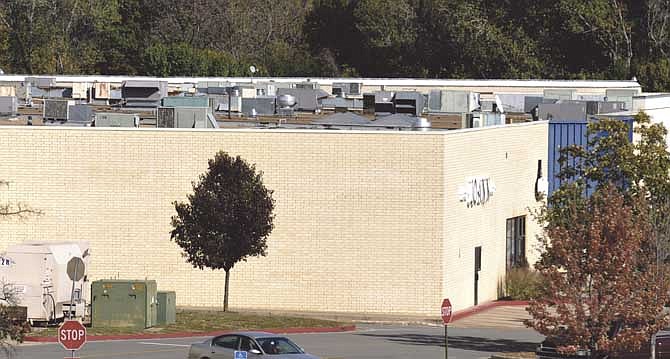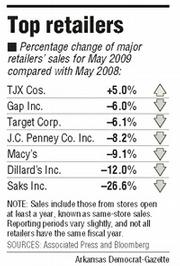The Capital Mall is hoping to get a $36 million makeover, but first property owners have to show Jefferson City officials the area is blighted.
Capital Mall JC, LLC, owned by Farmer Holding Company, purchased the mall from General Growth Properties in December for $11 million. Now, the company is trying to establish a tax increment financing, or TIF, district to help pay for repairs and renovations, and is detailing the issues at Capital Mall.
A TIF allows for a portion of property and sales taxes generated by a development to be used to repay the costs of the redevelopment itself. A TIF district does not impose any additional sales taxes and is created through approval by the City Council after an area is shown to be blighted.
According to the TIF plan submitted to the city by Capital Mall JC, LLC, the mall "has experienced increasing vacancy rates, declining sales, and declining interest and commercial activity," which has decreased both property values and the amount of sales taxes generated. The plan states the mall has received few, if any, capital improvements "from its passive out-of-state owners" since it opened in the 1970s.
Included in the plan is a blight study, done by Shaner Appraisals out of Kansas, which states the mall has become an "economic and social liability" and the area suffers from a "defective and inadequate street layout," unsanitary and unsafe conditions, deterioration and "conditions endangering life and property by fire and other causes."
The opening letter, signed by Jason Roos, a state certified appraiser with Shaner Appraisals, concludes by calling the mall area "a menace to the public health and safety in its present condition and use."
Included in the blight study is a letter from Jamie Reed, general manager of Capital Mall, dated July 24 that details the conditions at the mall.
Among the physical deterioration and potential safety issues, Reed cites:
• Poor condition of the mall facade;
• Substantial number of active roof leaks and general poor condition of the roof;
• Substantial deterioration and age of HVAC system;
• Rusted and deteriorated steel service doors;
• Visual signs of suspect mold;
• Highly deteriorated parking lot pavement;
• Deteriorating curbs;
• And damaged service entry lights.
But Reed also noted in his letter that the mall's fire sprinkler system has not been tested since October 2009, even though it is required to be tested annually, posing a fire safety risk and leading the appraiser to state the conditions endanger life and property.
Interim Fire Chief Jason Turner said it is the responsibility of the property owner to ensure annual testing of sprinkler systems and make documentation of the testing available to the Fire Department upon request.
Because Farmer Development has owned the mall for less than one year, Turner said the new owners would not face any penalties or fines for the lack of testing.
The blight study also included operating statements for the mall going back to 2009, showing the mall's income has dropped nearly 30 percent between 2009 and 2011, when income went from $4 million in 2009 to $3.2 million in 2011. The mall's 2012 budget shows income falling to $3.1 million. The study states the declining revenue is due to the growing number of vacancies at the mall.
Reed said currently the mall has 24 vacancies out of 66 spots, but declined to comment further for this article.
The study also states the mall has fallen behind in sales per square foot, which are described as a "common way to view the potential future for a shopping center."
High quality malls are expected to take in $400 per square foot, while lower quality malls should take in $350 per square foot.
The Capital Mall takes in $161.88 per square foot.
"Anytime that a mall's sales fall below $300 per square foot, it is likely in serious trouble," the study states.
The study also points to the declining health of individual stores within the mall, citing a health ratio or occupancy cost that is calculated by dividing the annual rent by total sales for the year.
Healthy stores should have an average ratio of 11 percent to 12 percent, while any ratio above 15 percent "will likely land a store on a watch list." Any store with a ratio above 20 percent "is probably destined to go dark."
According to the study, seven stores at the Capital Mall have ratios above 15 percent, with five of those stores having ratios above 20 percent.
Rob Kingsbury, with Farmer Development, declined to comment for this story.
Related article:



